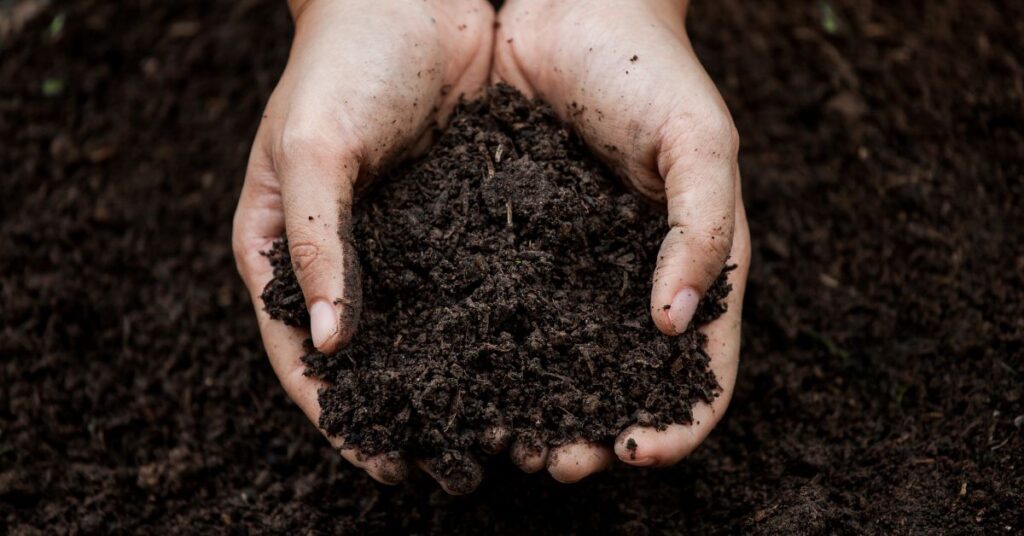In Australia, 7.6 million tonnes of food waste ends up in landfill every year. 32% of that is from businesses alone. This is what inspired Josie Grenfell and Annabel Schweiger to build Food2Soil from the ground up (literally); a solution supporting everyone from home gardeners to professional farmers to sow sustainably, all while cleaning up food-based waste.
As a brand, Food2Soil shines a light on the unsung hero of earth and human health – soil. They argue that you may have more in common with the dirt beneath your feet than you would initially think. Just like us humans, soil needs good microbes to perform at its best. However, unfortunately, today’s modern farming practices can have harmful long-term impacts on microbes and therefore soil health.
By fermenting commercial food waste into biofertiliser (aka biologically alive plant food), Food2Soil is quite literally turning trash into treasure, or as they describe it, creating ‘kombucha for plants’. Their unique blend of beneficial microbes, cultivated during the fermentation process, plays a key role in the relationship between plant roots and soil. Microbes help plants absorb nutrients through their roots and leaves. Food2Soil is scientifically tested and gardens across Australia are loving their new lease on life. Biofertilisers are known to improve plant health, improve resistance to pests and disease, and research shows food grown in healthy soil has higher nutritional value.
With their operations here in Australia, Food2Soil supports local innovation and careers in biodiversity, circularity, and research. They are also proud partners of Greening Australia, with 1% of profits going towards tree planting initiatives.
In addition to securing B Corp Certification, this fledgling female-founded business has earnt an impressive collection of accolades in their short three years, including a Silver in the Women Changing The World Awards (2023), a Gold in the area of sustainability and a Bronze for product innovation in the AusMumpreneur Awards (2022).
To learn more, we spoke to the Food2Soil team about the impact they have achieved so far, the connection between soil and human health, and their exciting future plans for expansion.

Image: Food2Soil
Tell us a bit about Food2Soil.
At Food2Soil, we use fermented commercial food and coffee waste to create biofertiliser right here in Australia. In addition to diverting waste that would otherwise be sent to landfill, biofertilisers contain nutrients that soil needs to function. They also contain beneficial microbes to maximise nutrient uptake and boost soil ecosystems (think kombucha, but for plants and soil). We are returning food nutrients back to earth, in a user-friendly way, going full circle, paddock to paddock.
2023 marks Food2Soils third year in business, and it’s impressive what you have achieved in this time – congratulations! Why was it important to you to pursue B Corp Certification so early in your business journey?
Food2Soil’s values embody the B Corp community principles. We wanted to be a B Corporation so that we could connect with a community of like-minded business owners and entrepreneurs, who are also trying to have a positive impact on the world.
We are deeply frustrated and concerned about the impact of climate change on flora, fauna and the overall health of our planet. Taking action is our way of turning this anguish into something constructive. We also knew we would be proud to show our alliance with the B Corp community.

Image: Food2Soil
Let’s talk impact. What makes Food2Soil unique as a business, and how much food waste have you successfully diverted from landfill so far?
By fermenting commercial food waste we are able to return a diverse range of valuable nutrients back to the soil – because the future of soil health is all about soil biology!
So far, Food2Soil has diverted over 2,644kg of food waste and 88,133 cups of coffee grounds from landfill as well as saved 5,024kg of carbon dioxide equivalent from entering the atmosphere. And this is just the beginning.
There are a number of factors that make Food2Soil unique in the market. The low-energy nature of our operations and the ability to get our main ingredient (food waste) anywhere, makes the Food2Soil system (aka Brewhaus) easy to scale into both rural and urban areas.
Food2Soil is also 100% natural, our products are suitable as an organic input, and are made with 95% recycled materials.
As a business driven to find solutions to current environmental and societal issues, we support the decentralisation of fertiliser production, and are also proud to be a female founded and owned business, in a male dominated industry.
Circularity is at the heart of your product and operations. What do you want to see from other businesses in approaching circularity?
We want to see businesses take responsibility for the negative impact they have on the planet, and when required, ensure they have a stewardship program in place to mitigate this negative impact. When a new product is created, its environmental impacts must be at the forefront of all decision-making — from production to distribution and its end-of-life care. We so often see shiny new gadgets on the market that we know will end up in landfill and far outlive us as junk.

Image: Canva
Tell us about a B Corp that inspires you, and do you have any words of wisdom for aspiring B Corps?
We are customers and followers of Who Gives a Crap toilet paper and often find inspiration in their journey. We often say we are the ‘Who Gives a Crap of home fertiliser’.
In terms of advice, keep at it. It’s a long process but if you’re doing something you wholeheartedly believe in, are passionate about and is good for the world, you will get there.
What’s next on the horizon for Food2Soil?
Food2Soil is planning their exciting new growth, with the expansion of the Food2Soil Brewhaus, capable of producing x20 the current volume of biofertiliser. This expansion will support us in reaching a wider audience, enter the agricultural market, and positively impact more soils (and reduce GHG emissions from landfill). We are currently connecting with partners, stakeholders, and impact investors.
A big thank you to Food2Soil for taking the time to share its journey with us. To find out more and explore their offering visit: food2soil.com.au

